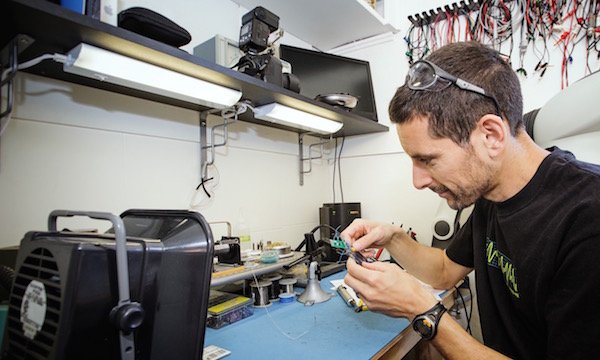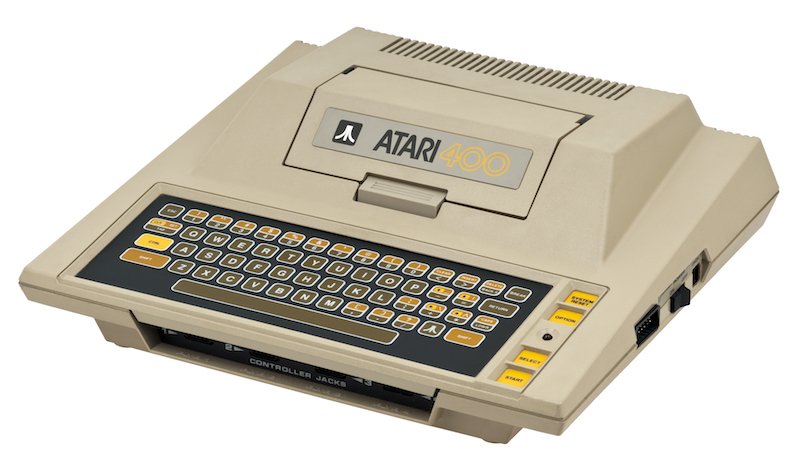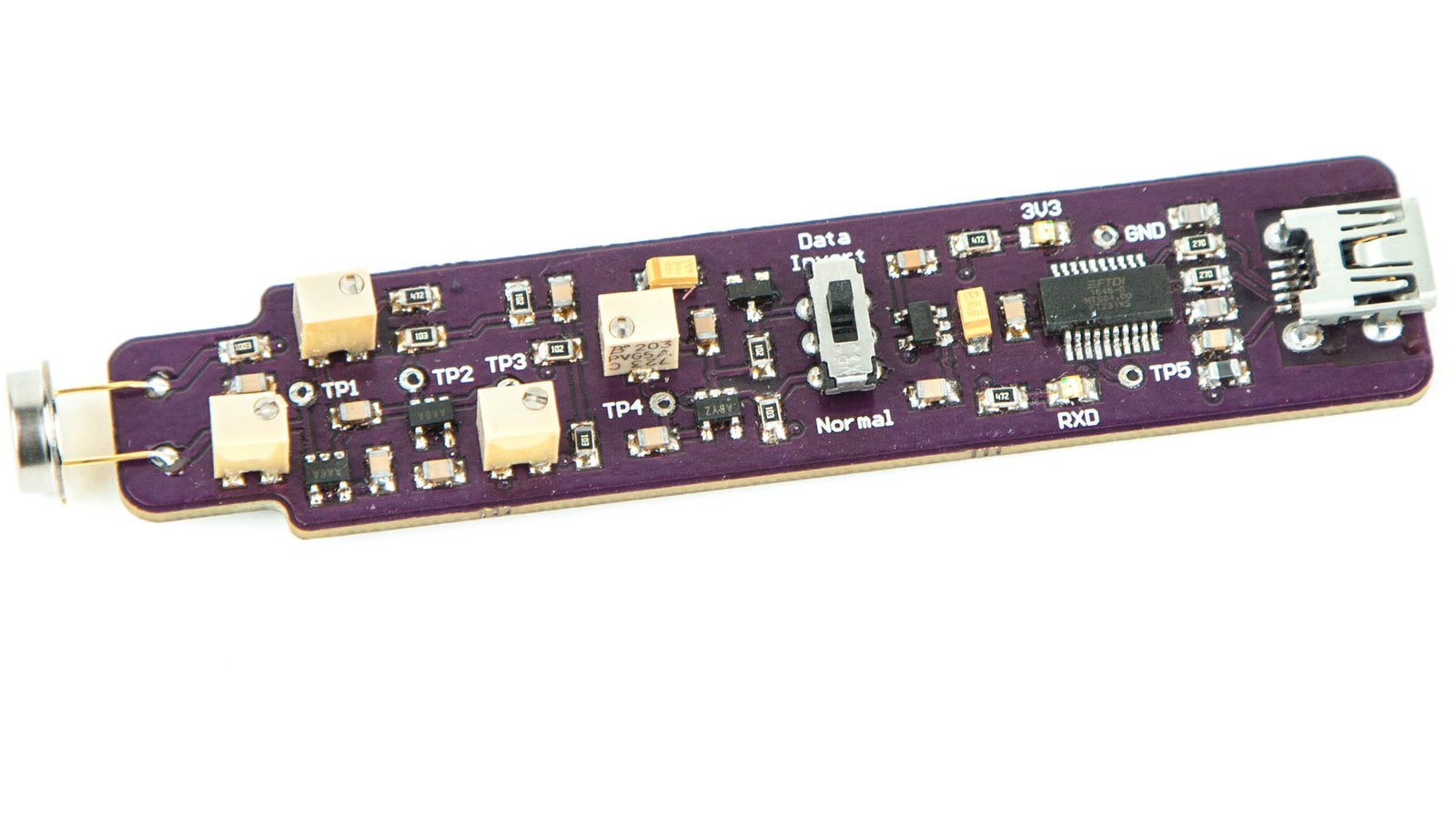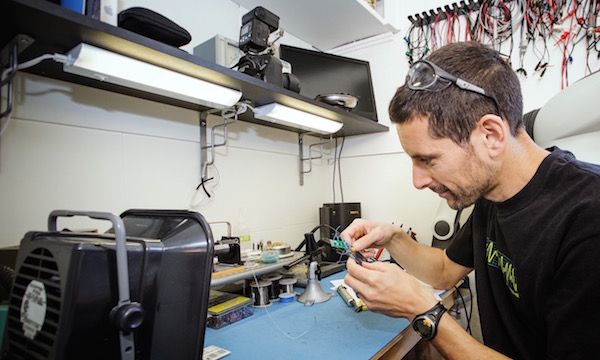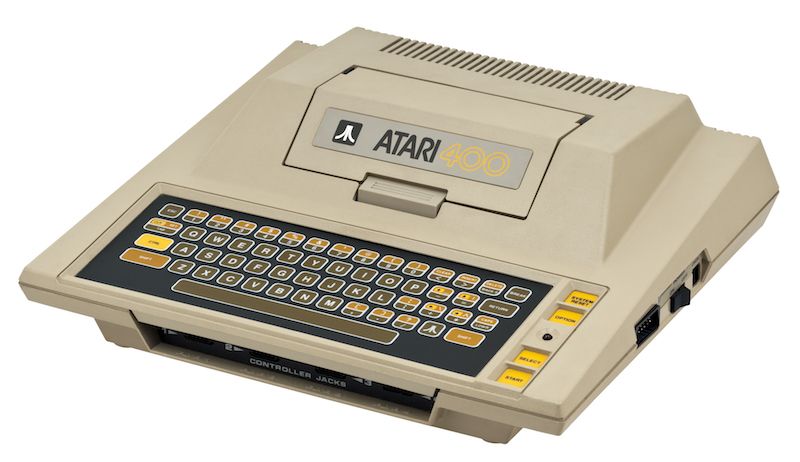A Chat with Joe Grand of Grand Idea Studio, L0pht Heavy Industries
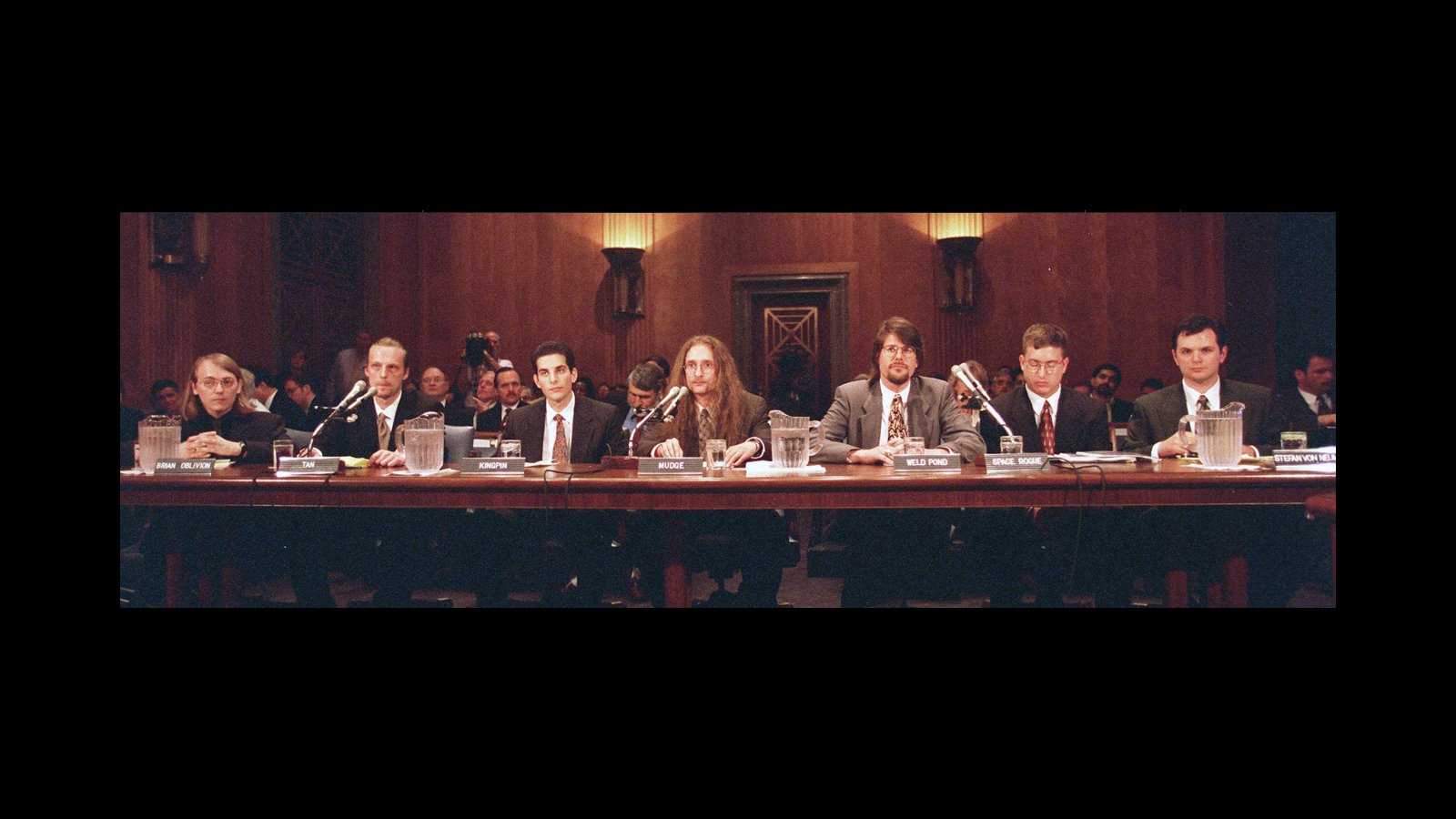
Joe Grand testifies to Congress with L0pht in 1998. From The Washington Post, A Disaster Foretold — and Ignored.
If you’ve ever seen Prototype This! on Discovery Channel, or remember L0pht Heavy Industries, you’re probably familiar with Joe Grand, aka "Kingpin". He’s made a name for himself as a prolific hardware hacker and today runs Grand Idea Studio in Portland, OR. We’re also lucky to have him as an advisor here at Crowd Supply.
We sat down with Joe at SXSW to chat hardware hacking, kids, and his thoughts on the state of computer security. Check out the interview, and be sure to follow him on Twitter @joegrand.
CS: How did you get the name Kingpin?
JG: Back in the day, being a curious kid interested in learning about and experimenting with computers was much less understood and accepted than it is today. When connecting to bulletin board systems, akin to today’s forums, you had to choose a name.
Some folks, who felt that they had nothing to hide, used their real name. I, on the other hand, went with a nickname. In 1982, as a 7-year-old, I called myself Black Ninja. For short periods of time after that, I was Autovon, Astro Zombie, The Youth, and The Agent.
I eventually settled on Kingpin, as it had multiple meanings that I thought were cool. I was an avid skateboarder and a kingpin is the vertical bolt used in a skateboard truck. It was also the name of a band from the Boston, Massachusetts hardcore music scene.
Although I wasn’t a fan of comic books, I did enjoy the aura of Kingpin from the the Spiderman series. He was a force to be reckoned with, a master of crime, dressed impeccably with a large diamond brooch. Much to the chagrin of bowlers everywhere, it had nothing to do with bowling. The name is really a snapshot of my life as a teenager. I haven’t formally used it in years, but we are indelibly linked.
CS: How did you get started hacking at such a young age? Are your own kids into it?
JG: My first system, in 1982, was an Atari 400 computer, Atari 810 floppy disk drive, and Atari 830 acoustic coupler modem. I spent a lot of time with my older brother and sister, typing in programs from magazines and connecting to bulletin board systems to trade the latest games.
Some friends in my neighborhood had computers, too. One with an Atari 800, one with an Apple IIe, and one with a TRS-80 and a Hayes direct dial modem. We discovered that, along with legitimate bulletin boards, there were other, strange systems with which we could communicate. I became fascinated by this seemingly endless world of computers all connected by telephone, which ultimately led to my involvement in the hacker underground.
My brother would also repair audio equipment and build small circuits to enhance our computer. He had a junk bin full of broken electronics. When I did chores for him, like doing his laundry or cleaning his room, he’d let me pick something. Once he taught me how to solder, I began building projects from books and magazines, and then figured out how to design my own.
In the early 1990s, I joined L0pht Heavy Industries, one of the earliest hackerspaces . It was part clubhouse and part research facility. We would hang out, tinker with technology, discover security flaws in software applications and hardware products, and try to raise awareness of the good that can come from non-malicious hackers.
My time at the L0pht helped reinforce the hacker mindset - that is, trying to solve problems with unconventional solutions, pushing the limits of technology, and dedication to learning through constant questioning and experimentation.
As parents, we try to expose our kids to a variety of activities, not just the ones we personally enjoy, and nurture them in whatever path they’re interested in following. Of course, they’re fully aware of what I do and think things like going to hacker conferences and building crazy electronics are totally normal (aren’t they?!).
I believe all children naturally think like hackers and we have a responsibility to keep that going for as long as possible. I’d consider our parenting a success if we can raise our kids to think critically for themselves and live their life to the fullest without outside influence.
CS: You testified to Congress about the state of computer security with L0pht in 1998. What are your thoughts (or fears) about the state of computer security and government surveillance today?
JG: The problems, both theoretical and practical, have gotten much worse. The attack landscape has changed dramatically. There are more computers and devices connected to the Internet than ever before and many more malicious actors involved.
The technological capabilities of our adversaries is unquestionably better than it was 18 years ago. Mobile devices are tracking our every move. Online services are harvesting our personal data and using it for financial gain. Electronic devices sold to us in the name of convenience are listening for and storing every word uttered within our homes. Governments are trying to intentionally weaken or limit the use of encryption in all of these products.
Privacy is something that we’re slowly, oftentimes willingly, losing. It’s a slippery slope that I don’t think most people will notice or even care about until it’s too late. The problem is largely driven by our society’s mass adoption of technology and blind loyalty to companies that are not actually operating in the best interests of the people.
CS: What are you working on now?
JG: We recently moved to a new house, so I’ve been spending a lot of time working on some not-so-technical projects like unpacking, organizing, and wiring. I’m not very mechanically inclined, so this is actually a great opportunity to get better at tasks that don’t strictly involve a computer or electronics tools.
Some fun things I’ve done include putting together a "hot line" using a 1960s Western Electric rotary phone in our kitchen, painted red from its time at a firehouse, a 1980s payphone in my office, and a telephone line simulator. When one phone is taken off hook, the other phone immediately rings. It’s an easy way to communicate without yelling back and forth between rooms and preserves technology that is all but obsolete. Seeing my kids’ reactions when they heard a dial tone for the first time was priceless.
I’m also experimenting with a 1990s-era ScramblePad - a high security access control keypad used in airports, military installations, and government buildings, that I thought would be fun to get working and put somewhere in the house. The keypad presents a random ordering of numbers on each iteration to prevent wear marks caused by repeated use, which can make it easier for an attacker to determine the PIN.
Besides that, I’ve been busy traveling to teach my hardware hacking classes and trying to squeeze in time to support some of my existing products and explore some new ideas!
CS: What new technology or hardware is totally blowing your mind right now?
JG: As strange as this sounds, I’ve actually become a bit of a technology minimalist these days. I feel that there’s so much hype, over-promising, and under-delivering in the hardware space that it’s hard to find something worth standing behind. Engineers seem to be creating products to attract a consumer, using technology just for technology’s sake, not creating products that solve a consumer’s problem.
It’s becoming increasingly difficult to pull out the good signals from all of the noise. A place like Crowd Supply [http://www.crowdsupply.com] is helping to change that by vetting and curating potential products to ensure a successful delivery to the market, which I think is the right approach.
With that said, I’m really enjoying the work coming out of the DIY/maker/electronics hobby community, which has really flourished over the past decade. There are so many great resources, hackerspaces, and ways to share information. Access to development tools and modules that can be used as building blocks for projects has never been better. These are the things that will enable, empower, and inspire our community to keep growing and creating.
CS: We hear you’re also an artist. What is your favorite piece, and what does it represent to you?
JG: I’ve never considered myself an artist, but I do like to create one-off projects every once in awhile where I don’t have to worry about the design details of bringing it to production. Each is special in its own way, but I’m really attached to my Hard Drive Coffee Table.
The pièce de résistance is a beautiful hard drive platter from an early data storage device circa 1950s or 1960s, possibly manufactured by Control Data Corporation, that I scored from an electronics flea market. I love that the completed project is simple and stark, yet functional, and incorporates a once state-of-the-art technology that we now effectively all take for granted.
Most importantly, it reminds me that we all stand on the shoulders of giants and that engineering is continuously evolving, building upon previous generations of failures and successes.
CS: Anything else you’d like to share?
JG: I think it’s important to note that projects don’t get done by themselves. If there’s something that inspires you, take the steps to make it happen. Not every project will be a success (by whatever definition you choose), but each one still serves a purpose. If you are passionate about what you do, then work will feel like play and you’ll be excited for what each new day will bring!
Update: Check the OpticSpy project Joe launched on Crowd Supply.
